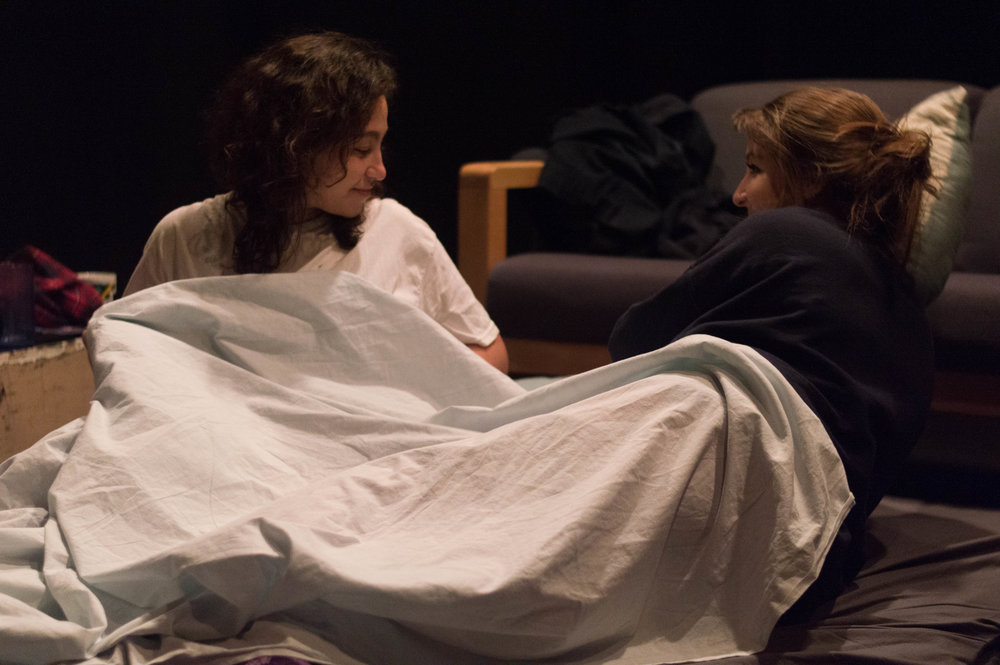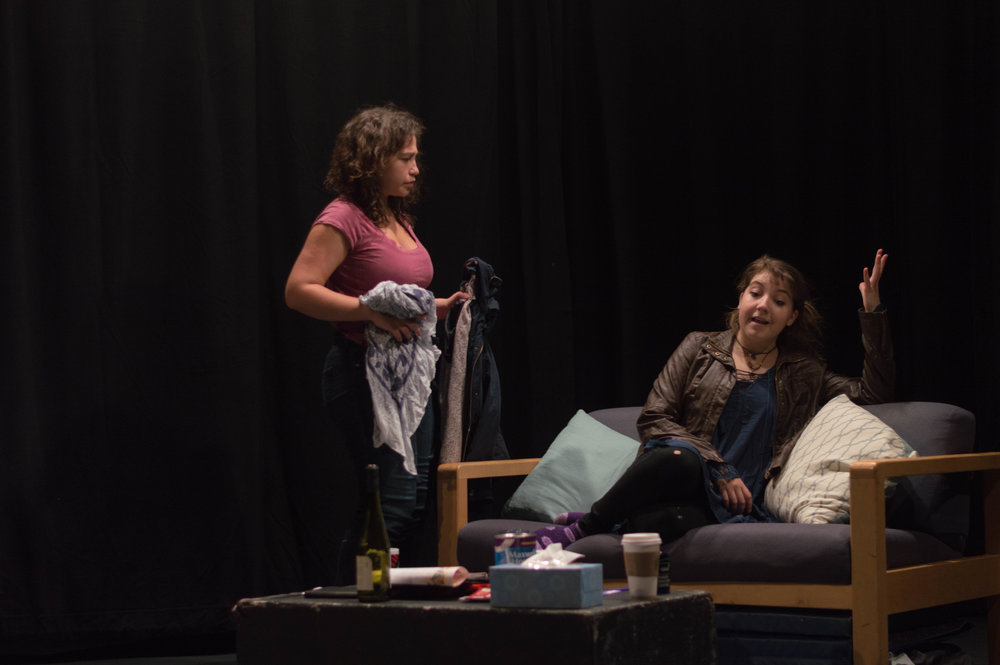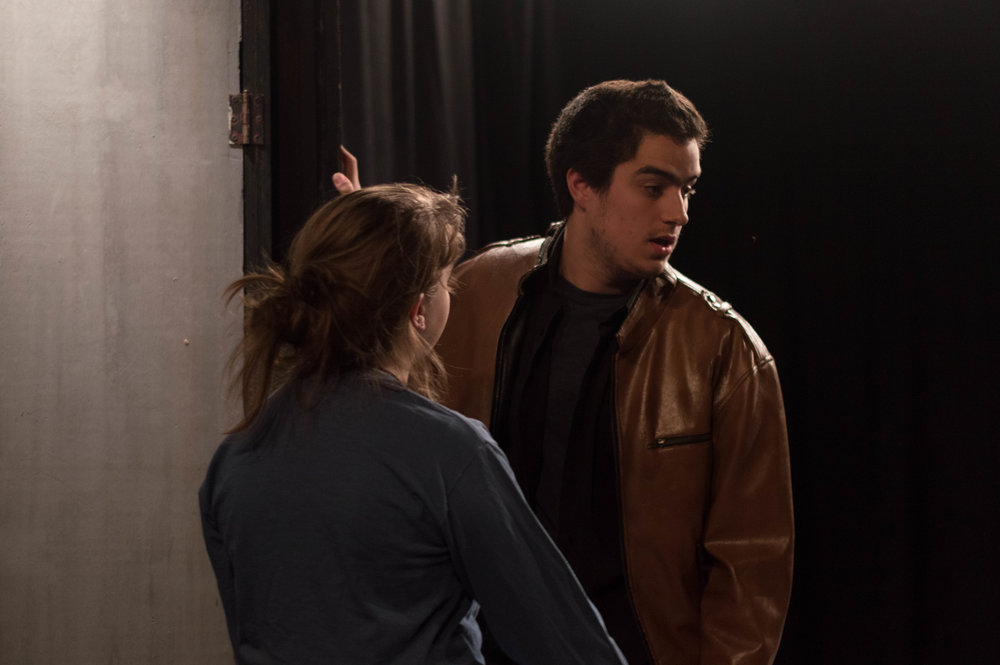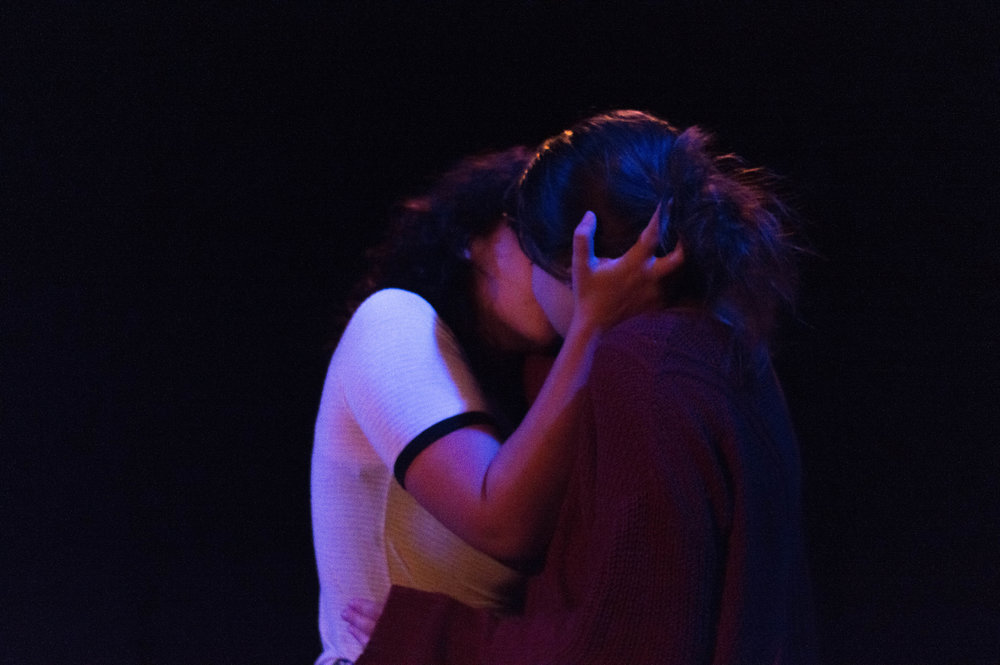
Elizabeth Goldberg ’19 (left) and Ellie Strayer ’20 in Stop Kiss. Photo: Dante Haughton ’19
Identity, Love, and Un-tucked Sheets
By Kellina Moore ’18
There is always a certain element of intrusion that comes with theater. At its best, theater makes us feel like we are watching something we are not supposed to be watching, like we are in on some sort of secret.
This is the feeling I get when I walk in to see Stop Kiss. The set could easily be my apartment—magazines strewn about, bras taken off after a long day and forgotten about, dirty cups: the works. The mess enhances this sense of intrusion, as if we have stumbled upon a friend’s place when they weren’t looking for company.
This intrusion is also intimate though, as we are looking at who someone is when (they think) no one is looking. This sense of intimacy is ultimately what Stop Kiss is about. Yes, it is a play about tragedy and identity and love, but ultimately it is a play about the small, intimate details of a relationship: the un-tucked sheets, the first fights, the awkward conversations, and all of the other little moments that go into discovering another person.

Elizabeth Goldberg ’19 (left) and Ellie Strayer ’20. Photo: Dante Haughton ’19
But in contrast to this intimacy, we are shown the cold, hard world of post-assault. The scenes alternate between a glimpse at before: the awkward first stages of a relationship, and after: the clinical and uncaring world of police stations, hospital waiting rooms, and ultimately the world of discrimination. In this way, the alternating scenes (presented literally on opposite sides of the stage) give us two different views of this burgeoning relationship: the interior and the exterior. We are able to see these people from two different perspectives, the way they view themselves and each other, and the unfortunate way that others view them.
The intimacy, then, is a way of humanizing the victims of assault. We don’t see another “gay-bashing” onstage (as we learn is the headline of Sara and Callie’s news story) but rather we see the way that two people are personally affected by the discrimination they face, even from their own loved ones. This play is not another headline. It is a deeply personal account of people who face physical violence simply for being who they are.

Ellie Strayer ’20 and Alec Sill ’20 on stage. Photo: Dante Haughton ’19
Though Stop Kiss first premiered in 1998, the events it depicts are still as topical as ever. LGBT*Q+ individuals are still facing discrimination and violence within the United States and globally. People still face physical violence based on nothing but their identity on a daily basis. This show, in the context of constant hate-based violence, is a testament to theater’s power and ability to fight back.
The last image we are left with is a complicated one. It takes place in the middle of the stage, literally halfway between the world of hospitals and the world of home. After a night out in the city, the blooming relationship we’ve observed finally culminates in a first kiss. We know all too well what is to come after this. However, there is something to be said about ending on an image of love, brave and unafraid, even in the face of violence.

The first kiss. Photo: Dante Haughton ’19
***
Kellina Moore ’19 is Assistant Editor of the Skidmore Theater Living Newsletter.
Photo Gallery
Production Credits
Written By: Diana Son
Director: Sonya G. Rosen ’17
Stage Manager/Lighting Designer: Chloe Brush ’18
Cast: Kyle Ferris ’18, Elizabeth Goldberg ’19, Mary Harriman ’20, Josh Karen ’18, Alec Sill ’20, Ellie Strayer, 20



















